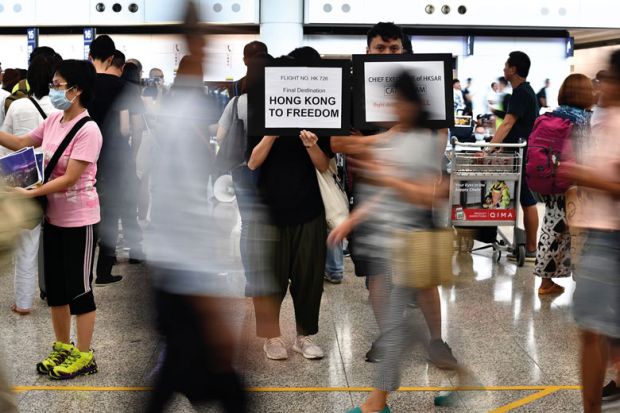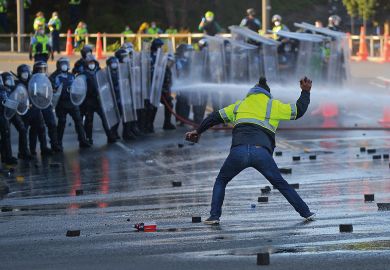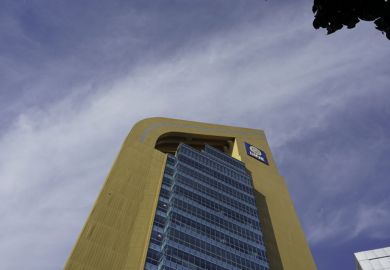The new security law imposed by Beijing on Hong Kong may prevent scholars and students based overseas from returning to the city if they have criticised China, experts have warned.
Under the legislation, authorities have been given new powers to punish “offences of secession, subversion, organisation and perpetration of terrorist activities”. Within hours of its introduction, the law had been used to arrest hundreds of protesters – including some holding placards with pro-democracy slogans – for alleged violations.
While activists believe that the law will be used mainly to stifle dissent within Hong Kong, legal experts have also drawn attention to its “long-arm jurisdiction” which allows offences committed by non-permanent Hong Kong residents outside the city to be prosecuted.
This could mean that internationally based Hong Kong academics who advocate for independence or for international sanctions against China could be arrested when they return, said Steve Tsang, director of the SOAS China Institute, who was born and educated in Hong Kong.
“This law is extraterritorial, which means it applies to anyone writing about China, whether they are in Hong Kong or London,” said Professor Tsang, who added that he would no longer feel safe travelling to Hong Kong. “I would absolutely consider it a risk,” he said.
While Professor Tsang maintained that his academic output on China was “critical commentary” as opposed to “advocacy”, which could be prosecuted under the new law, he said he was not confident that Chinese authorities would see the situation in the same way.
The draconian nature of the new law, under which crimes of secession, terrorism and collusion with foreign forces are punishable by a maximum sentence of life in prison, has also raised concerns that it could erode academic freedom in Hong Kong, despite an assurance from the city’s five leading universities that they will “stand fast in upholding the principles of academic freedom and institutional autonomy”.
Scholars in political and social science would find it much harder to be openly critical about Chinese policy, Professor Tsang argued.
“It will become a lot harder for them, and senior managers will also come under serious pressure to toe the line,” he said, adding that this loss of freedom would eventually erode Hong Kong’s reputation for academic excellence.
“You don’t suddenly lose that overnight, but there will be some erosion over time,” he said.
Tao Zhang, a lecturer in Nottingham Trent University’s School of Arts and Humanities, whose research focuses on media in Southeast Asia, said many Hong Kong scholars would be “deeply concerned that their academic freedoms were in danger”.
“It is an outrage and a catastrophe to replace the rule of law in Hong Kong with rule by fear,” said Dr Zhang.
Michael O’Sullivan, associate professor in the department of English at the Chinese University of Hong Kong, said he feared that the new rules on foreign collusion may discourage Hong Kong researchers from collaborating with international scholars.
“Since the precise nature of collusion and ‘external elements’ is so vague in this law, it will surely lead many academics to think twice before they lend their names to studies in a diverse range of fields such as security, international relations, politics, and even the arts and humanities,” said Dr O’Sullivan.
However, Hong Kong universities would remain a “vibrant international hub of academic talent” and a major destination for students across Asia, he believed.
“The restrictions on travel in the wake of the Covid-19 pandemic will also ensure that the thousands of talented young Chinese students who would typically go abroad must now find universities closer to home,” Dr O’Sullivan said.
POSTSCRIPT:
Print headline: Hong Kong academics may stay away to evade new law
Register to continue
Why register?
- Registration is free and only takes a moment
- Once registered, you can read 3 articles a month
- Sign up for our newsletter
Subscribe
Or subscribe for unlimited access to:
- Unlimited access to news, views, insights & reviews
- Digital editions
- Digital access to THE’s university and college rankings analysis
Already registered or a current subscriber? Login








